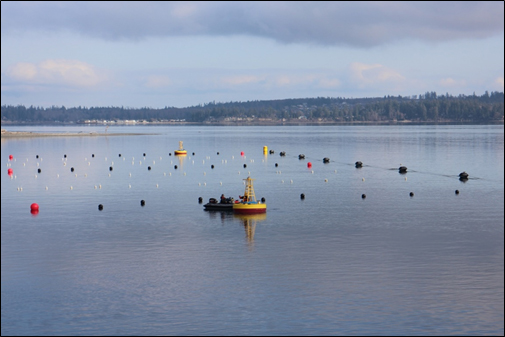Study evaluating potential of kelp forests to offset impacts of coastal ocean acidification

West Coast researchers have completed the first year of field work for a three-year study examining whether planted kelp forests in Washington’s Puget Sound could help protect vulnerable shell-forming organisms from the corrosive effects of ocean acidification.
SCCWRP’s role in the multidisciplinary study, which began in 2017, includes helping to deploy mesocosms in the middle of a Puget Sound planted kelp forest; the mesocosms house pteropods, two oyster species and mussels.
Researchers are hoping the study will shed light on whether cultivation of coastal kelp forests is a viable management strategy for helping to offset the intensifying effects of acidification on marine calcifying communities.
Current science suggests that kelp forests have the ability to change the carbonate chemistry of water through natural photosynthetic processes that remove carbon dioxide. But it is unclear if the change is significant enough to improve habitat conditions for calcifiers.
More news related to: Climate Change, Ocean Acidification and Hypoxia